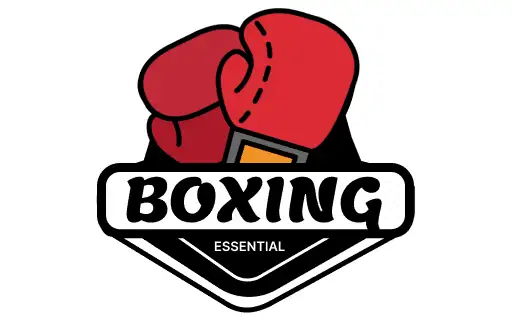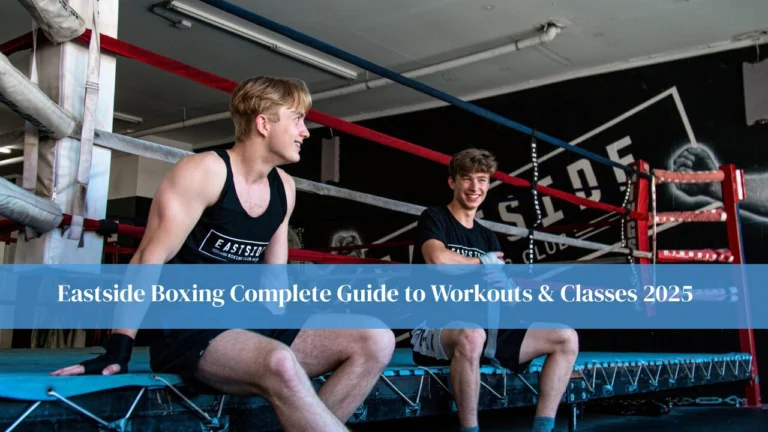Becoming a boxing coach is an inspiring and fulfilling career path for those passionate about the sport and helping others succeed. Whether you’re a seasoned fighter or a fitness professional looking to expand your skill set, learning how to become a boxing coach requires a combination of technical knowledge, certifications, hands-on experience, and the right mindset.
This guide will walk you through everything you need to know about becoming a boxing coach—from education and certification to gaining experience, building a career, and creating a name for yourself in the boxing world.
What Does a Boxing Coach Do?
A boxing coach trains and mentors athletes to develop their physical and mental capabilities in the sport. From teaching techniques and refining defensive strategies to improving footwork and overall fitness, a coach plays a central role in an athlete’s development. They are responsible for designing training routines, preparing athletes for competition, and providing guidance throughout a boxer’s journey.
Beyond the physical side of the sport, a boxing coach serves as a mentor and motivator. They help athletes strengthen their mental toughness, offering insight, encouragement, and support. Whether coaching complete beginners or advanced fighters, a successful coach adapts to meet individual goals and challenges.
Education Requirements to Become a Boxing Coach
While becoming a boxing coach doesn’t demand a specific degree, having a background in fitness or sports science is definitely beneficial. At a minimum, a high school diploma or GED is required. Many aspiring coaches choose to study fields such as exercise science, kinesiology, or sports management to deepen their understanding of how the body performs and responds to training.
Courses in anatomy, physiology, sports psychology, and biomechanics can also be incredibly helpful. This educational foundation enhances your ability to create balanced training programs and manage aspects like recovery, nutrition, and injury prevention. Though not required, higher education can open doors in schools, athletic organizations, and larger sports institutions.
Boxing Coach Certification: Your First Real Step
Certifications are often the first formal step for those serious about becoming boxing coaches. Obtaining a recognized certification not only validates your knowledge and professionalism but also ensures you’re equipped to work with athletes safely and effectively.
Different organizations offer various pathways, depending on your focus. Some certifications are aimed at competitive boxing, while others target the fitness market. Core topics covered in these programs typically include coaching ethics, technical instruction, athlete development, and competition rules. Additional credentials such as CPR, first aid, and safeguarding training are also recommended, especially for those working with youth or vulnerable populations.
Gaining Real-World Experience
Classroom knowledge and certifications lay the groundwork, but real-world experience is what shapes an excellent coach. Immersing yourself in boxing environments helps you refine your approach, learn to read athletes, and adjust your methods accordingly. Volunteering at local gyms, assisting experienced coaches, or even running youth sessions can provide invaluable insights.
Some aspiring coaches gain experience by participating in amateur bouts or attending coaching workshops and boxing seminars. Observing different coaching styles allows you to see what works in various contexts and helps you develop your own voice and technique. At its core, coaching is about connection, trust, and motivation—skills best honed through hands-on practice.
Where Can Boxing Coaches Work?
The beauty of boxing coaching lies in its flexibility. You can work in traditional boxing gyms, fitness centers, schools, or community outreach programs. Some coaches focus on preparing athletes for competition, while others specialize in using boxing for fitness, rehabilitation, or even stress relief. Opportunities also exist in youth clubs, senior programs, and female-focused boxing initiatives.
In today’s digital world, many coaches are also finding success online by offering virtual classes or consultations. Whether you want to coach full-time, part-time, or freelance, the boxing industry has a place for you. With combat sports growing in popularity, there’s a rising demand for knowledgeable and versatile coaches.
Essential Skills and Traits of a Successful Boxing Coach
To thrive in this role, more is required than just technical boxing knowledge. Great coaches communicate clearly, inspire athletes, and lead by example. Patience, empathy, and adaptability are essential traits, especially when working with beginners or clients from diverse backgrounds. Coaches should be physically active enough to demonstrate techniques and participate in pad work or drills.
Organizational skills are also important for planning sessions, tracking progress, and managing schedules. A solid understanding of boxing strategies, rules, and human movement is key. Ultimately, a successful coach creates an environment of discipline, respect, and continuous growth.
Costs Involved in Becoming a Boxing Coach
While starting your journey doesn’t demand a huge investment, there are some costs to consider. Certification programs can range from affordable entry-level options to more expensive advanced courses. You may also need to budget for gym space, liability insurance, and essential gear like gloves, pads, or mitts.
If you’re running your own business, marketing expenses—like building a website, advertising, or creating branded materials—should be factored in as well. Continuing education, seminars, or travel for competitions can add to your costs, but many coaches find these investments pay off quickly as they grow their client base and professional reputation.
Building Your Coaching Brand and Career
Once you’re certified and have some experience, it’s time to build your coaching identity. Starting at a local gym is a practical step. You can begin as an assistant coach or offer small group sessions to test your approach. Networking is crucial to connect with local trainers, attend boxing events, and engage with coaching communities online.
An online presence also helps expand your reach. A basic website or active social media page showcasing your coaching style, client progress, and training tips can attract new clients. Platforms like Instagram, TikTok, or YouTube allow you to share content and build credibility. Collecting reviews and testimonials from satisfied clients adds further value to your personal brand.
Offering a free trial session or workshop can be an effective way to draw in potential clients. By demonstrating your skills and professionalism firsthand, you make it easier for people to commit. Some coaches, like Coach Mike from the Chicago Boxing Academy, have built thriving businesses by combining strong digital marketing with solid coaching principles.
FAQs
What is the difference between a boxing trainer and a boxing coach?
Trainer focuses more on physical conditioning and drills. Coach covers broader strategy, technique, and mental preparation.
Can I coach boxing without ever having competed?
Yes, though having some practical boxing experience is strongly recommended. Even sparring or amateur training builds credibility and skill.
How much does a boxing coach earn?
It varies widely:
- Part-time/assistant: $15–$30/hour
- Experienced personal coach: $40–$100/hour
- Full-time professional coaches: $50,000–$100,000 annually
Those who run their own gyms or offer high-ticket private coaching can earn more.
Do I need a personal training certification to coach boxing?
Only if you’re offering boxing for fitness. If coaching for competitive boxing, certifications from USA Boxing or a similar body are sufficient.
Can I become an online boxing coach?
Yes. Many coaches offer remote training via Zoom, fitness apps, and video programs. Strong marketing and content creation skills are essential.
Is boxing coaching a sustainable career?
Absolutely. With rising interest in combat sports and fitness, demand for qualified boxing coaches is growing. Diversify your services and continue learning to stay relevant.
Conclusion
Now that you understand how to become a boxing coach, it’s time to put that knowledge into action. Start with a certification, get involved in your local boxing scene, build experience, and establish your coaching identity. Whether you want to coach champions or empower beginners, the ring is ready for you.
Ready to start your journey? Consider checking out local certification programs, shadowing a professional coach, or reaching out to a boxing gym near you. Visit boxing essential to get more guide.




